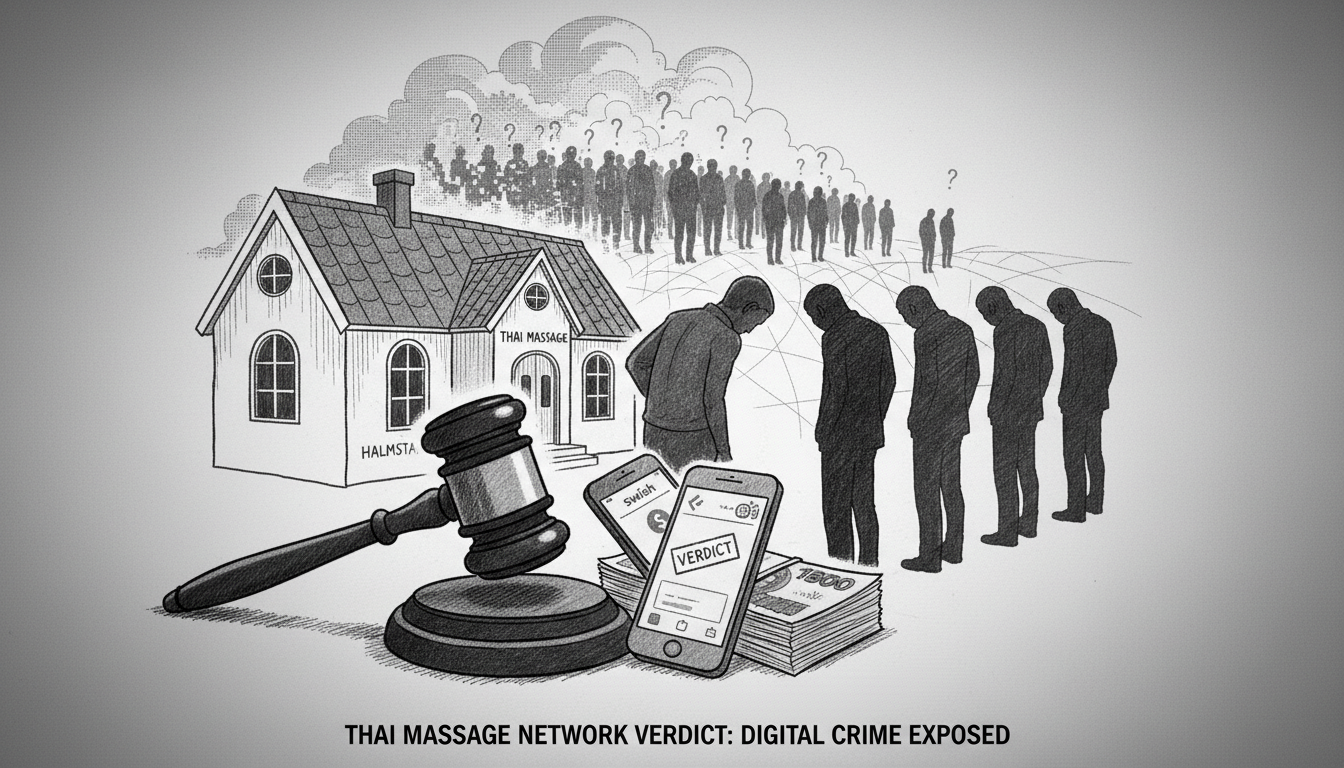A woman received a one-year, eight-month prison sentence for operating a sex purchase network through a Thai massage parlor in Halmstad. She was also convicted on drug charges. One of the sex buyers received three months in prison, while three others received conditional sentences.
Police raided the massage establishment during spring operations. The couple facing charges includes the female salon operator and her husband who handled bookkeeping.
Prosecutors argued the salon's massage therapists received unreasonably low wages, which forced them into providing sexual services at their workplace. This exploitation formed the core of the prosecution's case.
The four convicted men were identified as the most frequent users of double Swish payments. Police explained this payment method involved one Swish transfer to the salon and another directly to the masseuse. Investigators determined the second payment likely compensated sexual services.
Prosecutors now believe 88 additional men may have purchased sex through similar double Swish arrangements. These individuals could face legal proceedings as the investigation continues.
This case highlights how digital payment systems can both facilitate and expose illegal activities. The use of Sweden's popular Swish app for illicit transactions shows how criminals adapt to new technologies while leaving digital trails for investigators.
